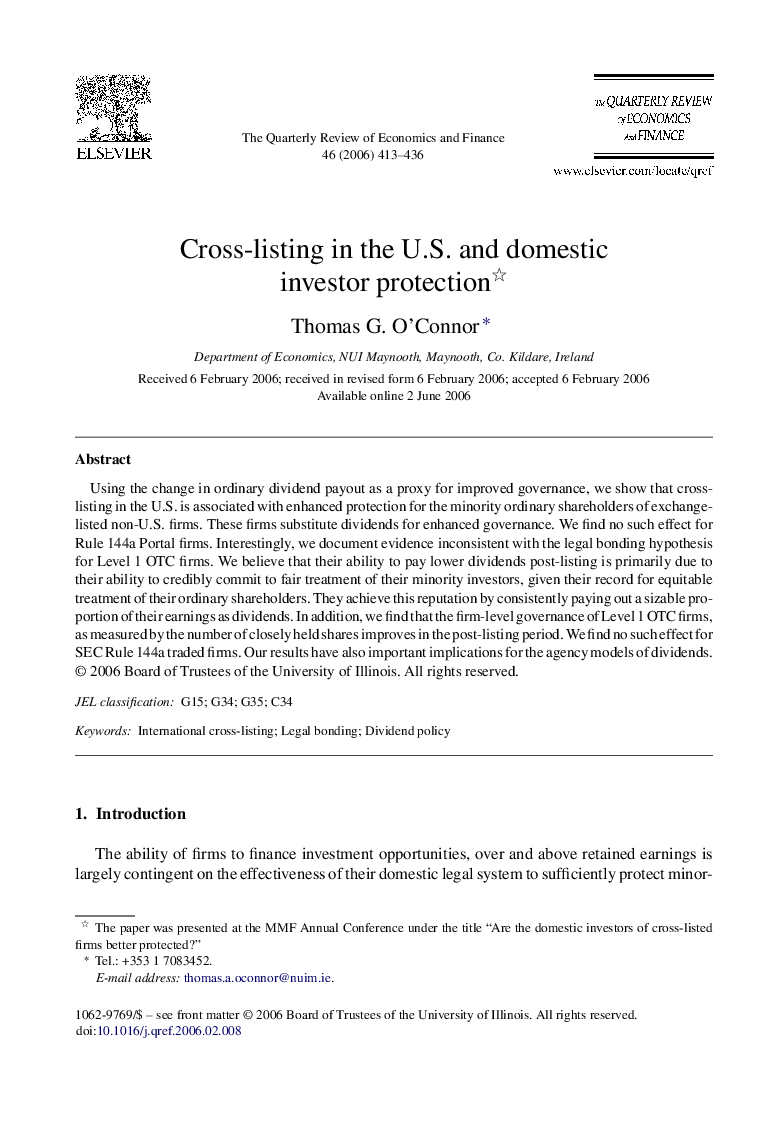| Article ID | Journal | Published Year | Pages | File Type |
|---|---|---|---|---|
| 982397 | The Quarterly Review of Economics and Finance | 2006 | 24 Pages |
Using the change in ordinary dividend payout as a proxy for improved governance, we show that cross-listing in the U.S. is associated with enhanced protection for the minority ordinary shareholders of exchange-listed non-U.S. firms. These firms substitute dividends for enhanced governance. We find no such effect for Rule 144a Portal firms. Interestingly, we document evidence inconsistent with the legal bonding hypothesis for Level 1 OTC firms. We believe that their ability to pay lower dividends post-listing is primarily due to their ability to credibly commit to fair treatment of their minority investors, given their record for equitable treatment of their ordinary shareholders. They achieve this reputation by consistently paying out a sizable proportion of their earnings as dividends. In addition, we find that the firm-level governance of Level 1 OTC firms, as measured by the number of closely held shares improves in the post-listing period. We find no such effect for SEC Rule 144a traded firms. Our results have also important implications for the agency models of dividends.
